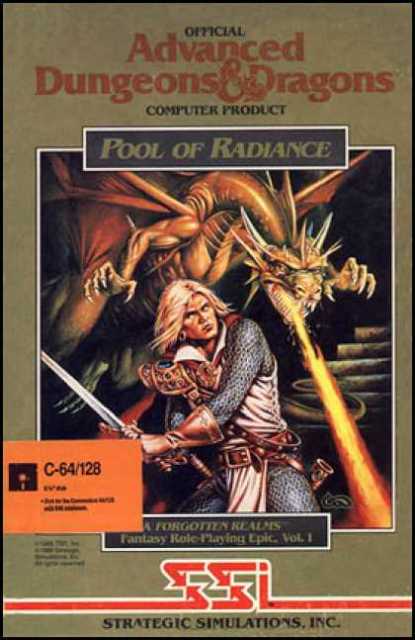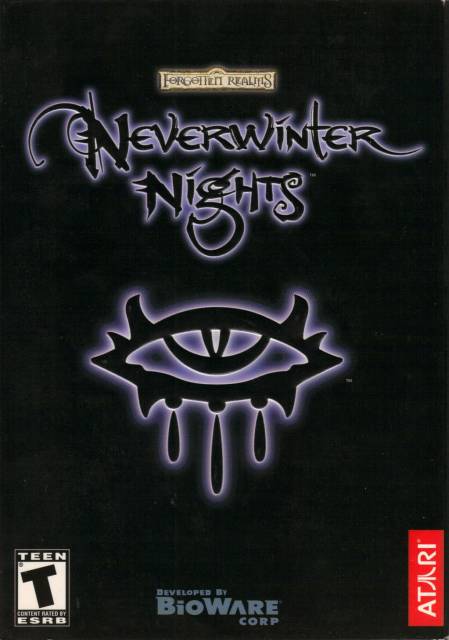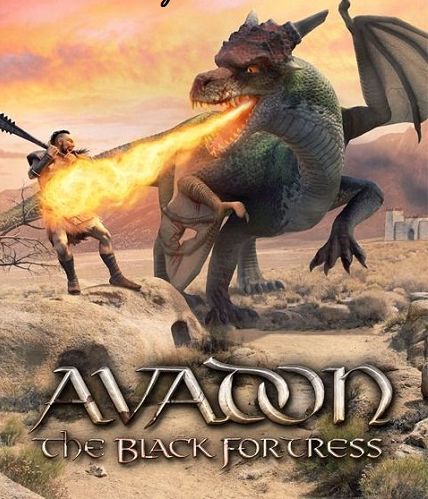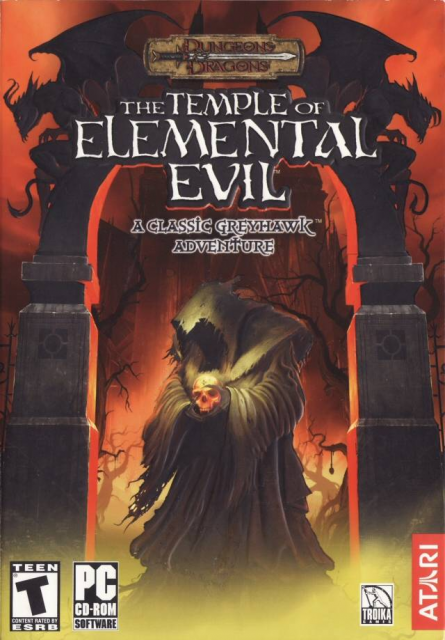Madule Modness
By Mento 4 Comments
While everyone else was having needlessly overwrought conversations about a single review from a site no-one seems to particularly care for considering they only ever get brought up once they've displeased the Gamer Collective Consciousness (with perhaps a few additional discussions about a certain irascible Indie game developer for flavor), I've been pontificating with GB PCRPG aficionados @sparky_buzzsaw and @arbitrarywater about the wide world of adventure modules and how they relate to video games. Adventure modules are simply the self-contained quests that are sold in stores alongside various other table-top texts and paraphernalia with the idea that you would take the singular adventure within and use it in lieu of anything created by your hands from scratch for that week's adventure with your pals/victims. It meant you could relax and enjoy a well-designed if short adventure using the tools and rules you were already familiar with, and for the publishing companies it meant creating and selling a great deal of these relatively easy/quick to produce ephemeral sojourns from the talented game designers and authors in their employ rather than trying to constantly come up with entire new rulesets and worlds that would require balancing and all sorts of time and expense. Everybody wins.
So why, then, has it taken video games so long to adapt this idea in earnest? I mean, adventure game modules have been around from the 70s, back when Gary Gygax and Dave Arneson were penning standalone quests for this interesting new take on fantasy miniature wargaming they had devised. Setting out the basic rules with a Player's Handbook (and, of course, a separate DM's Handbook for the player assigned to run the campaign), any number of adventures could be created with that template and the ruleset would only need an intermittent sprucing up to maintain interest and troubleshoot the occasional rule imbalance. Doesn't sound a million miles away from having a solid game engine and building a series of adventures to play on it, does it?
SSI Assassignments

Obviously, while my time spent with Shadowrun Returns provided the basis for the subject of this blog, it's hardly the first time I've played or seen a game that was ripe for a module-based content system, or had even adopted one of its own. You could see this as far back as the Gold Box era: Each of SSI's Gold Box games were functionally identical in how they interpreted the AD&D ruleset, with their first-person exploration and third-person strategic turn-based combat. The only difference between the releases, beyond a few mechanical and graphical updates, were the classic D&D modules they presented: Pool of Radiance, Curse of the Azure Bonds, Gateway to the Savage Frontier, Champions of Krynn - these were all extant table-top modules set in various different campaign settings (the Krynn series were set in the world of Dragonlance for instance; a setting perpetually in a high-stakes war of good vs evil. Most of the others are set in the far less tumultuous Forgotten Realms) that were all adapted for a singular video game engine. Because each module was such a well-packed adventure, they were all released as separate games. Hardly a module-based format, then, even if that was what the Gold Box series ostensibly was in practice.
Neverwinter Nodes

A better example of a purer module-based game might be BioWare's Neverwinter Nights. While it had the benefit of a publisher and a considerable budget behind it, a lot of emphasis was spent on the game's Aurora Toolset editor. Clearly the creators had the same intention of Shadowrun Returns's developers Harebrained Schemes, though not quite as much out of necessity.
While Neverwinter isn't the only RPG that came with a user-friendly creation tool, it does hold some significant personal meaning as I would eventually use it to create my final year project in Game Design school. My proposal at the time, as I recall, was to demonstrate the versatility of the Aurora toolset by how it was possible to single-handedly generate enough content to substitute almost an entire game in and of itself for the single semester sequestered for the project, which was in some way a compromise for the lack of actual assets (coding, art, etc.) that I'd have to personally create. The module itself is lost to time - which is just as well, since it had a heavy influence of referential in-jokes about a certain internet forum I used to roll with and is therefore somewhat inscrutable - but the relative ease in creating a 10-15 hour long adventure, complete with in-game cutscenes, multiple areas and the ever-requisite and fairly interminable period of time put aside for testing and balancing, was quite remarkable and really demonstrated how capable a decent mod tool could be for creating content. Ultimately, Neverwinter Nights didn't need its user mods and heavy modding community to be a major hit in its own right, but it certainly didn't hurt. This has pretty much been the case of many a PC RPG to follow as well - take Bethesda's recent games, all of which have been heavily modified by their passionate communities and are often improved immeasurably as a result.
DLC Destinations

However, some gamers will never be happy with anything short of developer-generated content direct from the source. It's all fine and well to delve into the sticky mire of fan-produced content, as would often be the case with a session spent with LittleBigPlanet and games of that ilk, but it's unlikely to be as engaging and entertaining as something created by a professional game designer or author with some legitimacy under their belt.
The rise of DLC in recent times is an affirmation, if one was even needed, that players are all too happy to purchase more content for a game they enjoyed. They also tend to be slightly less satiated by multiplayer and arena type DLCs that don't include any additional story, going by the reception to the recent BioShock Infinite announcement as well as some of the less well-regarded DLC for Borderlands and Saints Row: The Third in the past. A proper module should be a self-contained adventure with the gameplay and setting we've grown to appreciate, which most of the best DLC packs tend to be. The only issue is that every DLC is - by design - going to be significantly smaller than the core game. If it's anything more than a few hours in length, the chances are it'll become the basis for a sequel, or at the very least a standalone curio like Far Cry 3: Blood Dragon. Just to digress briefly, I'd have no particular objections if more games like Blood Dragon were to emerge: briefer adventures using extant engines that can produced (and sold!) far more cheaply.
Episodic Excursions

Another curious and fairly recent development is the emergence of episodic RPGs. Episodic adventure games have been making the rounds for a while now, thanks to Telltale's pioneering of the conceit. I should say re-pioneering, if that's even a word one could conjugate without contradicting the original word's definition, since Sierra beat them to it by several decades with Quest for Glory. Similarly, Quest for Glory allows you to take an RPG character that you've developed with virtual blood, sweat and tears (the latter is often especially the case with the characteristically merciless Sierra adventure game library) and import them through each of the many adventures in the series. One didn't need to do that with Roger Wilco, since the erstwhile space janitor maintained a persistent level of incompetency throughout all his adventures, but the creators of Quest for Glory's new RPG-Adventure paradigm clearly felt that they needed to reduce the amount of grinding whenever possible while also giving fans who bought the previous games a gratitudinous boon.
Spiderweb Software, a smaller RPG development studio that deals exclusively in downloadable turn-based PC RPGs, has been experimenting with an episodic format as well. Born from necessity, because as each chapter is released the revenue generated from that adventure is seemingly then added to the budget for the next and thus does the full game gradually emerge. This system has the added benefits of giving players some breathing room between each chapter of the game as well as letting players purchase the first chapter as a demo for the rest to follow, though these advantages seem serendipitously incidental in hindsight.
It's hard to say whether either of these episodic formats are truly a module-based system. Each Quest for Glory game is set somewhere new, but are - like the Gold Box games - fully-priced games that are all but independent from one another. Being able to import your character from game to the next seems more like the developers throwing a bone to players who spent a long time (much longer than they perhaps needed to) developing their character for the few inescapable fights between the usual inventory puzzles. On the other hand, Spiderweb's respective Geneforge and Avernum series are clearly meant to be multiple chapters of a singular epic tale.
Player's Troika Peregrinations

From games that use a module-based format to games that could've really benefited from same, we move now to Troika's trilogy of promising if ultimately flawed projects. Troika created three games in three very distinct worlds: Arcanum, set in a steampunk-infused fantasy world; Vampire: The Masquerade - Bloodlines, set in White Wolf's gothic depiction of a modern world in which vampires and other monsters peacefully (and not-so-peacefully) co-exist with humans; and the Temple of Elemental Evil: A Classic Greyhawk Adventure which took a leaf from the book of the Gold Box series of old by recreating a classic D&D table-top module within the framework of an incredibly in-depth RPG game engine based on the 3.5 Edition D&D ruleset.
Any one of these projects could have had their longevity extended for years with a module-based development cycle. Troika always seemed to bite off more than they could chew, because what inevitably followed with the release of each of these very distinct projects were a litany of game-breaking bugs and issues that caused the games to be panned by critics and shunned by consumers, despite the vast amount of potential and promise hidden behind the glitchy veneer. Troika could rival BioWare and perhaps then some in sheer world-building innovation, if not necessarily in world-building finesse.
I sometimes wonder what the PC RPG landscape would be like if a single one of Troika's games - Temple of Elemental Evil in particular - could have been elaborated upon instead of summarily abandoned for the next fascinating and broken universe to pique their interest. If additional modules were built on ToEE's or V:tM's painstakingly comprehensive foundations, with each one perhaps taking some amount of time to improve the core engine's many programming foibles and enrich the experiences of those yet to try those games. If their publishers or poor reception or any number of unknown factors that forced them to constantly move forward actually stood aside and allowed them to revisit their past projects in that manner. Yeah, and maybe we can all dream of a universe where the Last Guardian and Beyond Good & Evil 2 actually exist.
The Bit at the End
Shadowrun Returns is a semi-unique case, in that the developers didn't have enough money from their otherwise highly successful Kickstarter campaign to produce both a worthy game engine and a fully-fledged single-player campaign to go with it. What they have instead is that worthy game engine and a rather barebones adventure to introduce it, with an accessible editor to allow other Shadowrun content creators to go nuts. Ideally, the amount of content from regular modder folk (as well as future content from the developers themselves, once the game brings in enough Steam money to fund them) will raise the game's status from potentially worthy purchase to a must-have for fans of story-driven, turn-based RPGs. It's a curious experiment and one that I could see catching on with development teams of a similar size to Harebrained Schemes in the future; a system that might eventually become as commonplace as episodic structures and DLC addenda. I guess we'll wait and see.
Phew, a particularly wordy nerdy outpouring from me this week. No worries, I'll be back to talking about video game butts or godawful TurboGrafx-16 games or ice creams that I like in next to no time. Thanks for stopping by!

4 Comments